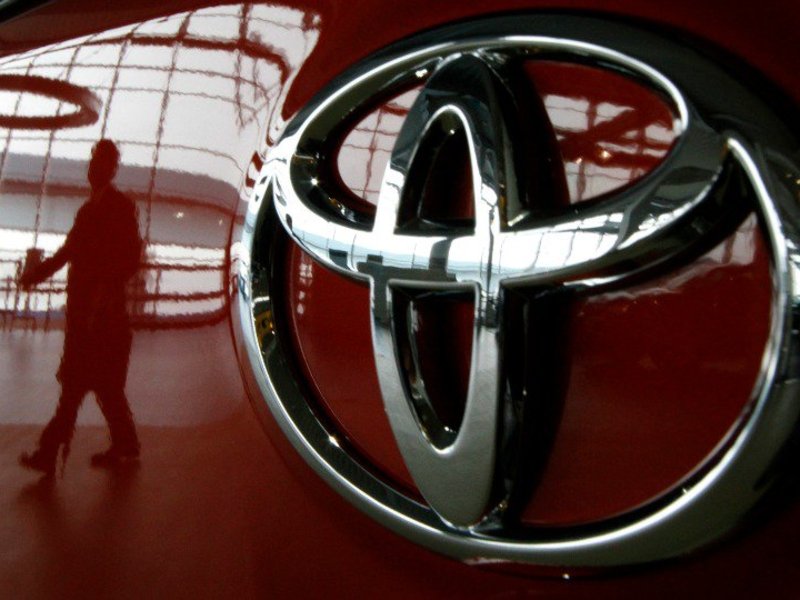
TOKYO — Toyota Motor Corp.’s automated-driving subsidiary Woven Planet is making its second major acquisition, buying an American artificial intelligence company that will help the world’s largest automaker generate next-generation mapping for self-driving cars.
Woven Planet declined to disclose how much it will spend to buy Carmera Inc., a company with offices in New York and Seattle that develops high-definition digital maps using vehicular crowdsourcing and remote sensing to capture street-level change. But the deal follows Woven Planet’s $550 million purchase in April of Level 5, the self-driving car unit of ride-hailing giant Lyft.
The Carmera acquisition gives Woven Planet a quick boost in automatically updated high-definition mapping, a key technology for all manner of self-driving new mobility. The technology is critical to creating precise maps that quickly and affordably stay updated with changes in the road scape.
In a news release that announced the deal early Thursday Tokyo time, Woven Planet said: “The teams will tap into Carmera’s ability to successfully update HD maps from crowd-sourced, camera-based inputs — a significantly cheaper and faster approach than traditional methods.”
The Toyota unit said the deal will strengthen its ability to map a full set of different road classes and features “reflecting changes in lane markings, traffic signals, signs and more in near real-time, and support its future multi-regional commercial launch.”
Toyota rechristened its autonomous driving and software subsidiary Woven Planet in January, but its operations launched in 2018 when it was founded as the Toyota Research Institute – Advanced Development.
Woven Planet consists of four group companies, including Woven Capital, which is brimming with $800 million to invest over the next 10 years in cutting-edge technology. Woven Core focuses on automated driving. Woven Alpha pioneers new businesses in such fields as connectivity, onboard software and high-definition mapping. And Woven Planet Holdings oversees the group.
Carmera will report through Woven Alpha’s Automated Mapping Platform. Other projects at Woven Alpha are the Woven City smart community and the Arene open automotive operating system that will allow for “programmable cars.”
The Automated Mapping Platform strives to become “the most globally comprehensive” road- and lane–mapping system, offering precise, localized maps to automated vehicles. Acquiring Carmera gives the Japanese company a head start in the especially important U.S. market.
“With Carmera joining the team, we’ll be able to hit the accelerator,” Mandali Khalesi, Woven Planet’s vice president of automated driving strategy and mapping, said in a release.
“Their world-class experts will allow us to bring forward the execution of key strategic milestones and jumpstart operations in the United States,” Khalesi said.
Woven Planet and Carmera have been working on projects together since 2018. Their collaborations demonstrated that the companies can successfully work together, laying the groundwork for the planned acquisition. Earlier projects focused on developing and updating high-definition maps using fewer commodity devices such as dashboard-mounted cameras.
“Our teams have a common view of the unmet need for ubiquity in advanced mobility data going forward, including maps,” Carmera CEO and co-founder Ro Gupta said. “This validates our founding thesis that richer, faster spatial intelligence is both critical to the next generation of ‘Mobility for All’ and viable at global production scale.”
Woven Planet CEO James Kuffner has said deals are part of the company’s go-big strategy.
The subsidiary’s goal is to make Toyota as strong in software as it is in hardware. That idea is rooted in the new conventional wisdom that future value in the auto industry will come from selling software and services, not from manufacturing the metal and rubber cars themselves.
Woven Planet’s expansion can come through straight buyouts, Kuffner said, such as the Level 5 and Carmera purchases. But he said growth also can come via piecemeal investments in promising new technologies through the Woven Capital investment fund.
The fund announced its first outlay in March, an equity stake in Nuro Inc., the robotics company that is developing four-wheeled autonomous delivery runabouts.

